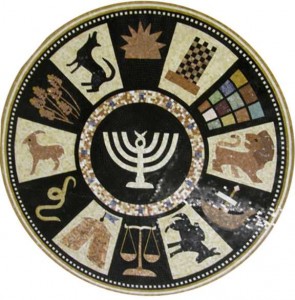Not All Israel is Israel Part 2
To many students of the Bible Paul’s comment in Romans 9:6 that “not all who are descended from Israel are Israel” (NIV) sounds very strange. Is Paul saying the part of Israel that is “descended from Israel” is no longer part of the nation known as Israel? Then that would mean the only people who are actually Israelites are Jewish people who believe in Yeshua as Messiah and the “not all who are descended from Israel ” group are no longer members of the Jewish nation. Yet if you follow that logic, any examples of the NT apostles addressing the segment of the Jewish nation who have not accepted Yeshua as Messiah as still “Israel” makes no sense.
Check out these examples from the New Testament:
Acts 2:22: “Fellow Israelites, listen to this:
Acts 2:29: “Fellow Israelites, I can tell you confidently that the patriarch David died and was buried, and his tomb is here to this day.”
Acts 2: 36: “Therefore let all Israel be assured of this: God has made this Jesus, whom you crucified, both Lord and Messiah.”
Acts 3:12: “When Peter saw this, he said to them: “Fellow Israelites, why does this surprise you?”
Acts 3:17: “Now, fellow Israelites, I know that you acted in ignorance, as did your leaders.”
Acts 4:10: “then know this, you and all the people of Israel: It is by the name of Jesus Christ of Nazareth, whom you crucified but whom God raised from the dead, that this man stands before you healed.”
No wonder Christians are befuddled by Paul’s reference to two Israel’s in Romans 9:6.
In light of Paul’s head-scratching use of the phrase, “”not all who are descended from Israel are Israel”, Christian theologians come up with explanations that confuse the issue even more.
My favorite explanation is the one that states unbelieving Israel has been replaced by the Church. This is called “replacement theology.” In this theological system, “Israel” that accepted Yeshua is none other than the Church. Rather than create clarity, Replacement Theology (aka disguised as Fulfillment Theology or Transformation Theology or Promise Theology) contributes more fuzzy thinking since the reader of the New Testament is forced to think “Church” when he reads the term “Israel”. Try to think “Church” in reading Romans 11:26, “and in this way all Israel will be saved.” Thanks, but no thanks.
When Bible students read further in the New Testament, they quickly discover Israel has not ceased to exist and has not been replaced by the Church. Revelation 7:4-8 describes the regathering of the Twelve Tribes of Israel during the tribulation period and the text offers great detail as to the members of the tribes and their names:
Then I heard the number of those who were sealed: 144,000 from all the tribes of Israel.
From the tribe of Judah 12,000 were sealed,
from the tribe of Reuben 12,000,
from the tribe of Gad 12,000,
from the tribe of Asher 12,000,
from the tribe of Naphtali 12,000,
from the tribe of Manasseh 12,000,
from the tribe of Simeon 12,000,
from the tribe of Levi 12,000,
from the tribe of Issachar 12,000,
from the tribe of Zebulun 12,000,
from the tribe of Joseph 12,000,
from the tribe of Benjamin 12,000.
So where are the tribes of Israel in the Church?
In Matthew 19:28 Jesus spoke to the Twelve Disciples, “Truly I tell you, at the renewal of all things, when the Son of Man sits on his glorious throne, you who have followed me will also sit on twelve thrones, judging the twelve tribes of Israel.” When Yeshua spoke these words, the Church was not even in existence. The Church was not birthed until the Day of Pentecost.
When the disciples heard Jesus speak of “the twelve tribes of Israel,” they had no other framework to think from other than the literal, historical twelve tribes of which they were all members. Replacement theologians are forced to claim that between Matthew 19:28 and Revelation 7:4-8 the Scriptures switched gears on believers and transformed the twelve Jewish tribes into a metaphor describing Christians – gentile and Jewish. One must conclude, according to Replacement Theology, the New Testament writers were either unclear, had no idea what they were talking about or did not take Jesus literally!
Some theologians try to allegorize the text in Revelation 7 because it fits their preconceived notion the Church has replaced Israel. However, there is no indication in Revelation 7:4-8 that the Apostle John is providing us an allegory or a metaphor or spiritualizing the term “the tribes of Israel.” It amazes me how far Christian interpreters will go to defend their position when it is obvious they are way off the mark in their handling of the biblical text.
By maintaining the integrity of the term “Israel” as referring to the Jewish nation, we are able to continue our discussion of Romans 9:6-8 – a passage crucial to understanding Israel’s place in God’s eternal plan.
The Question Raised by Israel’s Refusal to Accept Yeshua as Messiah
In Romans 9:1-4a Paul expresses his grief over the spiritual condition of “his people, those of my own race, the people of Israel.” The Apostle is devastated the people to whom the God of Israel revealed Himself failed to open their arms wide to the promised Messiah of the Jewish nation.
Why is Paul so concerned about Israel’s about face when it came to accepting Jesus? The answer is found in verses 4b-5 where Paul lists all the benefits God has given the Jewish people, “Theirs is the adoption to sonship; theirs the divine glory, the covenants, the receiving of the law, the temple worship and the promises. Theirs are the patriarchs, and from them is traced the human ancestry of the Messiah, who is God over all, forever praised! Amen.”
In light of these divine promises and benefits, Paul wonders, “Did the word of God contained in all the blessings given to Israel somehow fail?
After all, the divine blessings in vv 4b-5 were meant to bring the members of the Jewish nation to faith in the Messiah Jesus as seen in the last few phrases, “from them is traced the human ancestry of the Messiah.” The English Standard Version states the verse as follows, “and from their race according to the flesh, is the Christ.” What happened? Were the messianic promises unclear? Was it a divine glitch or human failure?
Therefore, Paul’s major concerns about the nation of Israel can be summarized in two questions: 1) Did the word of God fail in bringing them to faith in Jesus? and 2) Has the God of Israel rejected His own people in light of their lack of faith in Yeshua?
As we shall see from the study of Romans 9:6-8 the answer to both questions is a resounding “no.”
The Question Raised by the Giving of the Word of God to the Jewish Nation
In verse 6 Paul declares, “It is not as though God’s word had failed.” What proof does Paul give that the word of God has not failed? Answer: Not all of the Israelites who heard the biblical promises of a Messiah rejected the messianic message. In fact, there exists a Jewish remnant that has accepted Jesus as Messiah.
Before we can try to grasp Romans 9:6 we must quickly jump to Romans 11 to provide some background on the concept of the Jewish remnant.
In Romans 11:1, after asking whether the Lord rejected His people, Paul answers in verse 5, “So too, at the present time there is a remnant chosen by grace.” He is speaking of a remnant of Jewish people who believe in Jesus.
Even though the nation at large turned their back on Yeshua as the promised Redeemer, God still has a faithful remnant of followers of Messiah within Israel. These are the ones who have remained true to accepting God’s promise of the coming messianic Redeemer. In light of Paul’s argument about the present remnant, we draw several conclusions:
1. the existence of a present remnant of Jewish believers contradicts any argument that the Church has replaced Israel. According to Romans 9:6 it is because there is a Jewish remnant of believers in Messiah that the continuity of the chosen nation is preserved rather than being replaced by another group.
2. the existence of a remnant of Jewish followers of Jesus makes it clear that Israel still continues as the Jewish nation. Physical Israel is still Israel even if a large portion of the nation has not embraced Jesus. As was seen in the days of Elijah (Romans 11:2-4), God has always kept a remnant of true believers in Himself. The existence of a believing remnant or a “spiritual Israel” never implied the segment of the nation that did not believe in God’s commands are no longer part of the Jewish nation or became replaced by Jews who believed in the promises of the God of Israel. Jewish people who do not believe in Yeshua are still part of the physical nation of Israel with whom God has made covenants (Romans 9:4).
There is more to Israel than the spiritual remnant. Paul’s argument is that there is a remnant within the larger nation of Israel. The national identity of Israel continues despite the presence of a remnant. This is seen over and over in the Book of Acts where Paul and Peter addresses non-believing groups of Jewish people as “Israel” despite the fact they have not yet accepted Yeshua as Savior (Acts 5:21, 31, 35; 9:15; 10:36; 13:16, 23).
Israel was still looked upon as a viable nation after the the church was birthed and no Scripture in the NT points outright proclaims the Church has replaced Israel.
3. the existence of a Jewish remnant only confirms the view of Paul that God is still at work among the people of Israel. Look at Romans 9:4, “to whom belongs (present tense) the adoption, the glory, the covenants, the giving of the law, the worship, and the promises.” Paul does not say these promises once “belonged” to the Jewish people. Rather, he uses the present tenses to makes it clear the promises still belong to the Jewish nation and they have not been shifted over to the Church.
Let me paraphrase Paul’s argument in Romans 9:1-6a so that it is crystal clear before we continue,
“Lord, You made Your promise of a coming Messiah so clear to my people. You gave messianic prophecies through Isaiah, Micah, Daniel, Joel and so many more. You entered into covenants with Israel to keep them close to You so they would not miss the coming of the Messiah. Yet the nation did not receive Him even though Yeshua went to the lost sheep of the house of Israel. How did that happen? It can’t be that Your eternal word is defective or unclear or impotent. I stand on my life that Your word did not fail. So what happened?” (To be Continued)







